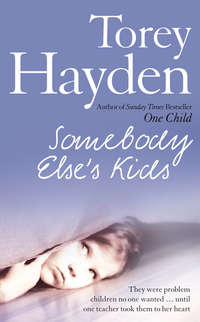
Полная версия
Overheard in a Dream
“The thing is,” Laura replied, “I did know that. By the time I was eight, I had already realized other kids didn’t think about these kinds of things, or if they did, then not in this kind of detail. I didn’t know why I did. I didn’t know why it was in my head and no one else’s, but it was. When my dad asked me what I was doing that night, it was like he had come in partway through a movie. I was following the storyline and everything made sense to me, but how did I catch him up on that when he didn’t know all the stuff that went before?
“And I remember that sense of confusion. I lay there, studying his face in the gloom and not saying anything because I didn’t know what to say. I could tell by his expression he was hurt. He thought I was keeping things back from him on purpose, that I was probably sharing these stories with the Meckses because they were my everyday folks but not with him, because he wasn’t around enough. Which wasn’t true at all, because I didn’t share it with anyone, but I could tell he was thinking that. So I told him I was playing make-believe because I wasn’t sleepy yet, and was filling time until I was.
“My dad gave me this special smile he always saved for whenever he was going to do something he thought would really please me, and he said, ‘You know what? I’ve got a good idea. I think you deserve a later bedtime. From now on, you can stay up an extra half-hour each night. You’d like that, wouldn’t you? To stay up later?’
“I said yes because I could tell he wanted me to be really happy about it, although the truth was, I didn’t want a later bedtime. I preferred going to bed when I did because I wanted to be with Torgon.
“He smiled warmly. ‘And one of these days, you’ll grow up, Laurie. When you’re little, pretending is lots of fun, but as you get older, you don’t need to pretend anymore because you have real things to think about and real things are always much nicer.’”
Laura leaned back in the chair. “I remember my father kissing me then and pulling up the covers. Tucking me in, and leaving. Torgon was gone for the moment and I was there alone, lying in the darkness.
“I’d always known, of course, that people outgrew their imaginary games. By eight most of my friends already had. I’d convinced myself, however, that I was going to be an exception to this and it would never happen to me. I’d hold on to Torgon and the Forest forever. That night, however, was the first time it dawned on me that I might be wrong. Maybe I wouldn’t be different, and someday Torgon would be gone.
“This huge, aching loneliness washed over me in that moment and I started to cry. I was thinking, if losing all this is growing up, then I don’t want to do it. But what if I had no choice? What if the time came when I could no longer see the Forest? What if my mind stopped being able to fill up with its sights and sounds and scents? What if I was no longer privy to the complexities of Torgon’s life? I remember thinking that I’d have too much mind for my head if Torgon wasn’t in it. She was different than my pretend games like Butterfly the Pony. Torgon was organic. She was not so much something I’d created as something I’d discovered. She was my other half, the part of me I needed in order to be whole. She was the union of me and not-me.”
Laura’s session stayed with James in a way that didn’t usually happen. Part of it was undoubtedly the strangeness of this imaginary companion. People motivated to come into therapy because of the breakdown of a marriage usually talked about relationships. James had already noticed that Laura wasn’t going to be drawn into conversations about Conor. He could accept that perhaps that relationship had broken down so far that there was going to have to be some new groundwork laid before Laura could be coaxed back into a bond with her son. However, as the breakdown in her relationship with Alan had been the reason she herself had given for agreeing to therapy, James had assumed that was where they’d start. That she’d chosen instead to talk about her relationship in childhood with an imaginary person was curious but also gripping.
Part of the session’s staying power was also the manner in which Laura spoke. While living in New York James had made the acquaintance of several writers, mainly because Sandy thought they made impressive guests at dinner parties. He had often been less than impressed. Most had seemed joyless and unpleasantly pretentious, forever fretting about the demands of their “gift” and, in equal measure, the world’s lack of appreciation thereof. Laura’s dissimilarity to those former dinner guests was starkly apparent straightaway. Here was such a natural storyteller that while James didn’t have trouble maintaining the appropriate professional objectivity with Laura herself, he was struggling to keep his distance from her story, to remember to stop the narrative occasionally to ask questions or analyse what was said instead of getting caught up in it.
Going over to the bookshelves in his office, James took down one of Laura’s novels. He looked at the cover, which was unusually plain. The top four-fifths was pale blue and the bottom fifth was off-white. Spare as the design was, James still got a sense of the South Dakota plains from it. Too much sky against a flat, pale earth. Laura’s name was in a large plain font across the top. The title, The Wind Dreamer, was written small in comparison and in a handwriting font at an angle that slashed downwards through the blue into the minimalist earth like a spent arrow.
Turning the book over, James looked at Laura’s photograph. She was smiling. Looking directly at the camera, she had a very appealing expression. Very open. James was struck by this openness because it had not yet been an expression he’d seen in real life. What crossed his mind was that perhaps it was here, in her books, that Laura truly was most herself.
Sitting down in his office chair, he opened it.
“Hey, you!” The door to James’s office pushed open and Lars popped his head in. “I’m off,” he said. He paused. “What are you reading?”
James lifted the book.
Lars raised an eyebrow in amusement. “Becoming a fan?”
“Nah. Just doing homework.”
“What’s she actually like?” Lars asked with curiosity.
“Interesting,” James replied. “Complex.”
“Well, yeah, I could guess that.” Lars paused. “My cousin knows her brother quite well. According to him, it was a very ordinary family. Clever. They all did extremely well at school. But no literary background, nothing especially creative. Her brother’s an insurance salesman. But that’s what he said too. ‘She’s complex’.”
James nodded.
“Extraordinary talent fascinates me. Especially when it comes out of nowhere,” Lars said. “I always wonder how it happens.”
“Yes.”
A pause.
Lars shrugged. “Listen, what I actually came in to say was: when you come over tonight, would you bring that fishing reel you bought? That one you said you couldn’t get set up right? I got the rest of my ice fishing gear out last night and if we can’t get that reel sorted, I found another one you can use.”
James grinned. “You’re determined to get me out there killing some innocent creature, aren’t you?”
“Yeah, well, more just still trying to get the city stink off you,” Lars said and laughed. “Anyway the game on TV starts at eight, so the rest of the guys will be coming in about a quarter to. If you want to come over with the reel a little earlier, I can have a look at it.”
“Okay, see you later,” James replied.
When Lars had gone, James took the book over to the conversation centre. Settling back on the couch, he put his feet up on the coffee table and started reading.
It was the story of a young Sioux named Billy, who was haunted by his native culture. Born into a family who had left the reservation for the amenities of the city, given a white man’s name at birth and a white man’s education, Billy was a model of “modern integration” when he assumed his post as a teacher in a community college. However, his heritage, increasingly symbolized in the storyline by the South Dakota Badlands, overarched his contemporary urban lifestyle. He began to hear the voices of “the others,” of the sky and the land and the spirits of his ancestors.
The book opened with Billy’s poignant efforts at fourteen to give himself a native name. Having no real connection to the spiritual tradition of his heritage, the only native naming ceremony he had witnessed was on an episode of “Star Trek”. Thus it was First Officer Chakotay who guided him as he “received” his name from the only natural thing he encountered in his city apartment at that moment – the wind.
What was clever in Laura’s writing – beyond the simple fact that she had a compelling narrative style that quickly drew the reader in and didn’t let go – was that she was capable of creating a very substantial reality from Billy’s thoughts. Initially James couldn’t tell if these “others” Billy experienced were literal and Billy was having a paranormal experience, or if they were metaphorical and Billy was simply personifying his conflicts of identity.
This uncertainty bothered James at first. Gripping as the style of writing was, he was irritated at not being able to tell if he was reading a realistic exploration of the human mind or just a fantasy. Indeed, it bothered him so much that he got up and did a quick search on the internet for reviews to see how others had resolved the issue.
The reviews made much of Billy’s Native American ancestry and the tendency in these shamanistic cultures to incorporate visions and visitations into their religious beliefs, often brought on by drug use, sleep deprivation or fasting. None of the reviews labelled the book as fantasy or “magical realism,” so James took this to mean the spirits were all in Billy’s head and reading the remainder of the book would make this clear.
James knew what the reviewers didn’t, however, and that was about Torgon. Laura’s vivid description of her childhood encounter loomed over Billy’s experiences of “hearing” the sky or “seeing” his ancestors flying before the thunderclouds on the plains. Had the novel been an acceptable way for Laura to explore her own experiences with Torgon?
Drawn back into the story, he read on.
When James next looked up, it was 9:45. He stared at the clock in astonishment. How had it reached that time? The long-planned evening of beer and football with Lars’s buddies would be almost over by now, to say nothing of how worried Lars would be that he hadn’t shown up and that he wasn’t at home or, indeed, reachable on his mobile phone, since he always left it turned off at work.
Had the phone in the front office rung at any point? He hadn’t heard it, if it had. Closing the book, James stared at its deceptively plain cover.
This scared him, this unexpected enthrallment. He found it deeply unsettling that Laura Deighton’s imagination had so successfully managed to overpower his real world.
Chapter Nine
“Close the door,” Conor said abruptly. He was just inside the playroom. Dulcie had already shut the door and gone.
“Today you want the door shut,” James said.
“Today you want the door shut,” Conor echoed. There was a pause. His eyes flicked over James’s face and moved on. “Shut the door,” he said.
James caught the slight grammatical change and it intrigued him. Conor wasn’t always echoing. He often manipulated sentences, changing their structure subtly. It was easy to mistakenly believe they were just echoes, because normally one paid conscious attention only to the meaning of conversation, not the grammar unless it jarred. Increasingly, however, James noticed that Conor was doing this.
Changing the grammatical construction indicated Conor understood the meaning of the words. But then why echo so much? Was it for safety reasons? The echoed phrase was safe because someone else had said it first. Conor knew he wasn’t risking anything by echoing. Following the echo up with a subtle re-phrasing made the sentence his own.
James decided to pursue this possibility. “That’s right,” he said. “Shut the door. You know how to use words, don’t you?”
“You know how to use words, don’t you?” Conor echoed.
“Sometimes it’s scary to say things that are different.”
“Ehhh-ehhh-ehh-ehh-ehh,” Conor replied.
“Don’t worry. In here you decide. If you want to use your own words, you can. But if you prefer to use my words, that’s all right too. It’s your choice.”
“Ehhh-ehhh-ehh-ehh-ehh.”
James opened his notebook to write.
“Shut the door,” Conor said tentatively.
There was a pause.
“Close the door,” Conor said.
“Shut the door. Close the door. Yes, that’s right,” James said. “Two different words can do the same job. You’re smart about words, aren’t you?”
“Yes, that’s right,” Conor replied and James suspected it wasn’t an echo.
“What’s so depressing to me,” Alan said at the start of his session, “is that I’ve already fucked up one marriage. I’ve been through all the shit of fighting with an ex, of losing kids, of not getting to see them grow up. Been there, done that. So I can’t see how, for the life of me, I’ve ended up here again. I so thought I had it right this time.”
“What about your life before Laura?” James asked.
“I come from a family of high flyers who’ve been out in Wyoming since early pioneer days. My great-granddad founded the first bank in Gillette. When he retired, his son – my granddad – became the bank president. Then when the time came, it passed to my dad, who was his son. So, of course, it was just assumed that I’d go into banking too.
“I did try. I went to college and got the necessary business degree. I found my trophy wife in Fran. We got married in June the year I graduated and she was pregnant with our first daughter by July. I was in the bank by August. I did everything I should. But I hated my life. The world of banking just seemed so hideously dull and dusty to me. I was crap at it because I just didn’t care.
“It was through the bank, though, that I got into dealing cattle. Started out by giving loans. That’s part of why I was so bad at it, because I kept lending money to these dirt poor ranchers who wanted to do something stupid like go buy some fancy continental bull like a Charolais that was completely inappropriate for Wyoming conditions. Pretty soon I was going out to see the cattle. Just checking out our investment in the beginning, but I liked going. I liked getting out of the bank. Before I knew it, I’d bought a few myself. And then I bought a small ranch to keep them on. That’s what did it. Up until that point I could keep up the pretence that I was really a banker. But I was good at cattle. I could do with cattle what my dad could do with numbers, and I loved it. That was a new feeling for me – doing something I loved – and I loved everything about it. The sounds, the smells, being outdoors. Being successful.
“When my father found out about the ranch, he went cold as the North Pole towards me. To him it was all about the legacy, about who was going to take over the bank after him, who was going to keep the McLachlan name on the office door and I was letting him down. I wasn’t living up to my obligations. I hadn’t even managed to produce a son, just three daughters.
“To Fran, the ranch was an insult. It was blue-collar work in her eyes. She kept saying ‘But I married a banker,’ as if by buying the ranch, I had reneged on some deal we had. She absolutely refused to move out to the country, which was, of course, all I wanted to do. And what I needed to do, if I was going to make a decent business of it.
“I stood my ground. I was almost thirty by then. Old enough to understand you can only go so far in fulfilling other people’s dreams, no matter how much you want to make them happy. But I lost a lot while learning that lesson. My relationship with my dad never did recover. And Fran and I only lasted about a year more. Then she met someone else and that was that. Which gutted me, because I had three gorgeous little girls and I hardly got to see them after that.
“So it was a lot different this time around. I went into this marriage with my eyes open and have really tried to avoid making the mistakes I made the first time out.”
“How did you meet Laura?” James asked.
Unexpectedly, Alan laughed. “I ran over her foot at the gas station!” And he laughed again, a deep, full-throated guffaw. “Really. I did. I’d stopped at this place out on the Pine Ridge reservation for gas. She was already there, but she’d driven up on the wrong side of the pump. So she was trying to pull the hose around to her gas tank. I was thinking, ‘Stupid woman driver’, because she’d blocked the way to the other pump. I tried to squeeze my truck by and I ran over her damned foot.”
James’s eyes widened.
“Broke it too,” he said cheerfully. “So it only seemed gentlemanly to ask her out to dinner.”
“It’s surprising she went after you did that!”
He laughed again. “Yeah, I thought so too. But she did. Whatever else you might say about her, she’s a good sport, is Laura.”
A small, wistful silence drifted in. “I can still remember our first date, that night I took her out to dinner. We went to this place called the Mill. She had the cast on her foot, so we couldn’t dance or anything. We just had a meal and talked, but it was really noisy in there, so I said, ‘Let’s go somewhere else.’ I was thinking of the Bear Butte Lounge over on the highway, because that’s a nice quiet spot, but when we got in the car, Laura says, ‘Let’s go out to the Badlands.’ That sounded a pretty strange idea to me, but I thought, ‘What the hell? Why not?’ It was a nice spring night. All starry. So, we went out past Wall and we parked at one of the overlooks and just sat in the car and talked.
“We talked and talked.” His smile grew inward. “And you want to know what happened? We actually talked all night long. About the Black Hills mostly. I remember telling her about the ranch and my cattle, and she started telling me all these stories about how the land where the ranch was had been sacred ground to the Sioux. She was working out on the reservation at the time, so she was really well-informed on all this Indian stuff. And Laura can be such a fantastic storyteller, if you get her going.”
He laughed. “I was bowled over. All I could think of was that here was somebody who thought about the land just like I did, who loved this country, you know, right into her soul. So we talked and talked and never did anything else. Never even kissed that night. Not once, which makes us sound like a couple of real squares, but it was so good to talk like that with someone.
“Anyway, next thing I knew, it was five thirty in the morning and we were still sitting at the overlook in Badlands, and I thought, ‘Oh my god, what the hell am I going to say to Patsy?’ Patsy’s my middle daughter, and she was home from college for the Easter break and staying at the ranch with me. I just knew she was going to go back and tell my ex-wife I was staying out all night with women! I didn’t get home until after eight, because the Badlands are a good ninety minutes away from the ranch, and there’s Patsy in the kitchen when I came in. ‘Good date?’ she asks. And I said, ‘It’s all right, Pats, it’s not what it looks like.’ And she laughs. I could tell she didn’t believe a word I said. She says, ‘Don’t worry, Dad. I understand.’ But I knew she didn’t.
“I felt protective of Laura. I didn’t want Patsy to think Laura was the kind of woman you’d just take out and get it off with on the first date. So, I said, ‘Pats, if you’re going to tell your mother about all this, you might as well know I’m going to marry her. You can tell your mother that too.’” Alan laughed heartily. “So, that’s the point when I decided I was going to make Laura my wife, although it was almost two more years before I informed Laura of it!”
“It sounds as if your attraction was pretty instantaneous,” James said.
“It was. I just knew it was the right thing. Straight off.” Alan looked over at James. “So now I keep asking myself: how did it all go so wrong?”
Chapter Ten
Conor’s strange relationship with speech made James think of Laura, as he watched the boy moving around the room. Wind Dreamer’s eerie world still haunted James, hanging like cobwebs in the quiet corners of his mind to catch his thoughts at unexpected moments, pulling them back into the ghostly realm of the Badlands and the young man’s quest experiences. Interesting, James thought, how she could create something so powerful with words alone. Interesting, likewise, that Conor seemed to find words so dangerous that he confined himself to naming things, describing their obvious physical characteristics or repeating things that others had already said.
While doing his usual circumnavigation of the playroom, Conor had stopped at a large basket of Lego on the floor. He paused and pushed the cat’s nose into it. Reaching in, he then picked up a little Lego person. He studied it carefully. “Here is a man. With black hair and yellow shirt.” Putting the man into the same hand as the stuffed cat, he bent down and looked into the box again.
“Garden things!” he cried with unexpectedly delighted surprise. He lifted up some Lego flowers.
“You sound happy that you have found some flowers,” James said.
Conor bent back over the box. “And trees. Flowers and trees. Things for a garden.” He rooted energetically through the basket.
Astonished by Conor’s sudden animation, James leaned forward to watch.
“Many trees. See?” Conor said. He didn’t make eye contact but he was definitely interacting with James. As he took them from the basket, he set them up on the edge of the bookshelf.
“Yes, there are lots of trees in there and you are finding them.”
“There are trees on the moon,” Conor replied.
This was said with equanimity, slipped in quickly as if it were nothing more than another descriptor. “Three trees on the moon.”
As the toy trees ran out, Conor’s cheerfulness waned. He pawed through the Lego, just in case one had been missed but said nothing more.
Finally he straightened up and began arranging the ones he’d found in a very straight line along the bookshelf. He counted them, not aloud, but with his finger.
“What’s this?” he asked. It was the plastic road sheet, folded up on the shelf where he was lining up his trees.
“That’s the plastic sheet with roads drawn on it,” James said. “Remember? We’ve looked at it before. When it’s laying out on the floor, children often like to drive toy cars along the roads or make houses from Lego and create neighbourhoods.”
Clutching the cat to himself with one hand, Conor used the other to gingerly pull the sheet off the shelf and let it fall to the floor. It was heavy-gauge plastic, so it fell open easily, but it fell upside down. This seemed to mesmerize him. He bent and straightened the upside-down sheet out.
“The roads are on the other side,” James commented.
Conor rocked back on his heels and looked at it. “I think it’s the moon.”
James recalled Conor’s previous encounter with the plastic sheet and his odd echolalic comments regarding the moon landing. It had seemed a bizarre response. James could see no connection between the white sheet or, indeed, the plastic Lego trees and the moon.
Taking the Lego man from his other hand, Conor attempted to stand him up on the sheet. The plastic wasn’t quite flat, so the toy fell over. He tried again. Again it fell over. Frustrated, he shoved the little man under the sheet until it disappeared completely from view.
This pleased him. Conor pulled it out and then put it under again in a way that reminded James of his earlier fascination in covering up toy animals with tissues. However, as with so many other things Conor had done in the playroom, an intensity then began to overtake his actions and he repeated the behaviour several times obsessively.







